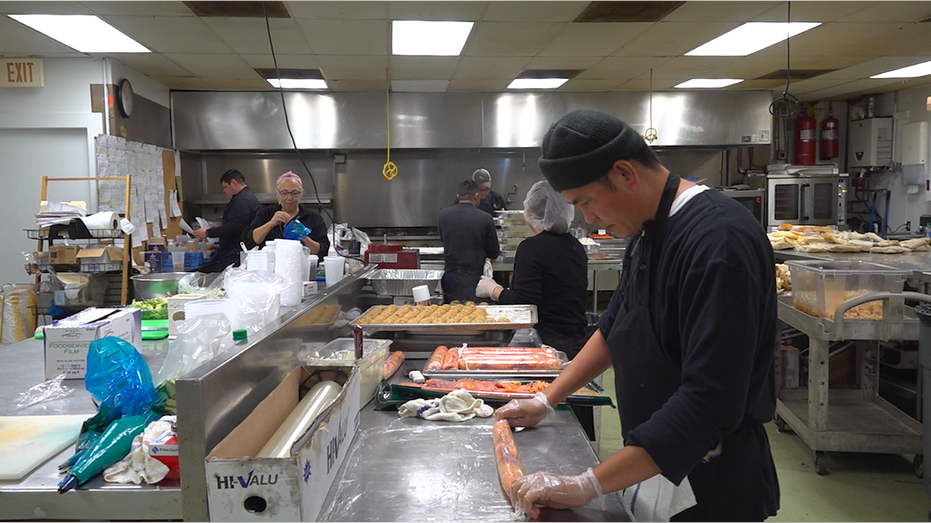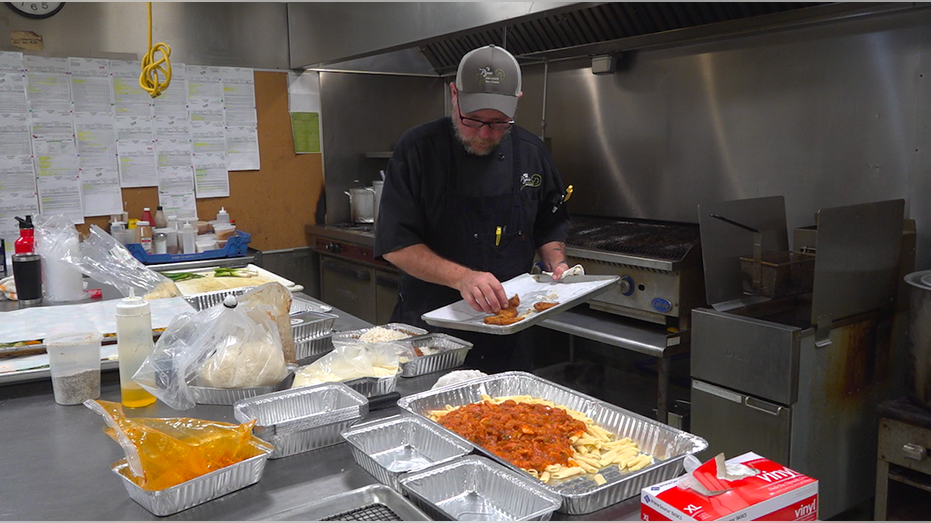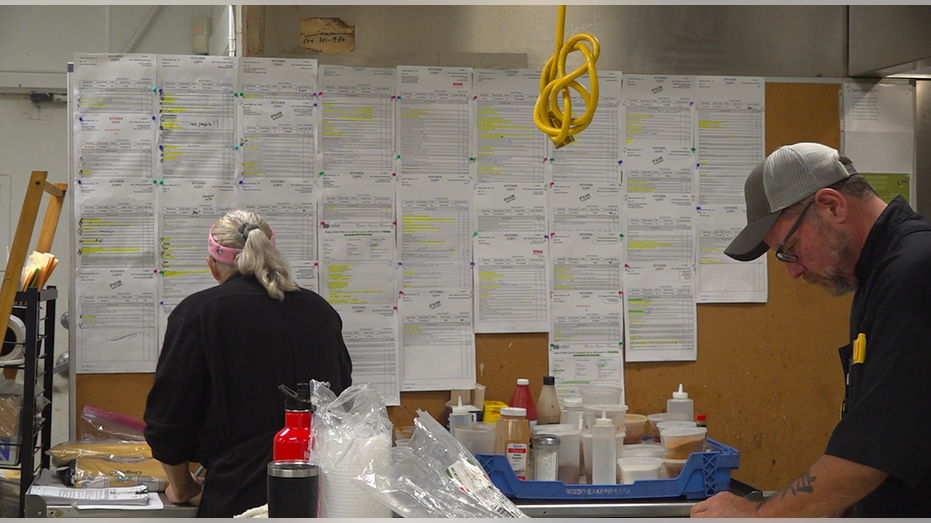Labor shortage puts catering companies in a bind during holiday season: 'Where is this going to end?'
893,000 workers left the hospitality industry in October
'Where is this going to end': Labor shortage puts catering companies in a bind during holiday season
The labor shortage is putting many catering companies in a bind this holiday season
NEW ORLEANS – We've been hearing about it for months. Business owners are struggling to find workers.
The labor shortage is now putting catering companies in a bind during the busy holiday season.
JOB OPENINGS CLIMB TO NEAR-RECORD IN OCTOBER AS LABOR SHORTAGE PERSISTS
Dean Pigéon, the co-owner of Pigéon Catering in New Orleans says he has enough staff to prepare the food for events. But when they arrive at events they never know how many gig workers, such as servers, dishwashers, and busboys are going to show up.

Many catering companies have enough staff to prepare food for events, but it's the gig workers they rely on to run events that are hard to find.
"We don't find out until we get there and people don't show up," Pigéon said. "Then, we just do our best to adjust."
US EMPLOYERS WILL LIKELY FACE A ‘LONG PERIOD OF TIGHT LABOR MARKETS’
Pigéon's Director of Sales and Marketing Leah Berhaneo says 30% of the workers hired for events often won't show up.
"Management then has to step up," Berhaneo said. "If a carver doesn't show up, somebody has to put a chef's coat on and go out and carve for the night. Or if a dishwasher is missing, I can't tell you how many times an owner has had to become a dishwasher themselves."
Both Berhaneo and Pigéon have years in the business and have never seen a struggle for workers like this.

The hospitality industry has the highest quit rate in the country.
"We'll order 30 dishwashers, servers, and bartenders, hoping to get 20 and we might get 15," Pigéon said. "It's a big-time struggle. It's like where did everybody go?"
Those in the industry say many of the gig workers started driving for food delivery services during the pandemic. Many found this is an easier way to make a buck than working a large catering event.
The U.S. Bureau of Labor Statistics finds that the hospitality industry has the highest quit rate in the country (5.6%). The latest numbers show over 893,000 workers left in October.
"We're trying to avoid that burnout as much as possible," Berhaneo said. "But without more people, our full time staff, they're working 16-20 hour days, four to five days a week."
The packed schedule is a welcome change for many catering companies after last year's holiday season when many events were canceled.

Many catering companies are completely booked with events for the first time since the pandemic.
"Last January, we were just standing in this kitchen," Pigéon said. "We didn't have a single event the entire month of January."
Since October, Pigéon catering has worked over 100 weddings and has a full schedule through Christmas.
However, Pigéon fears the industry won't be able to keep up much longer.
THE DECLINE IN WORKFORCE PARTICIPATION SHOULD BE WORRYING WASHINGTON
"Where is this going to end," Pigéon questioned. "When the city does come back full time, and every hotel is having events, the convention center is rolling; I don't know how it's going to play out."





















